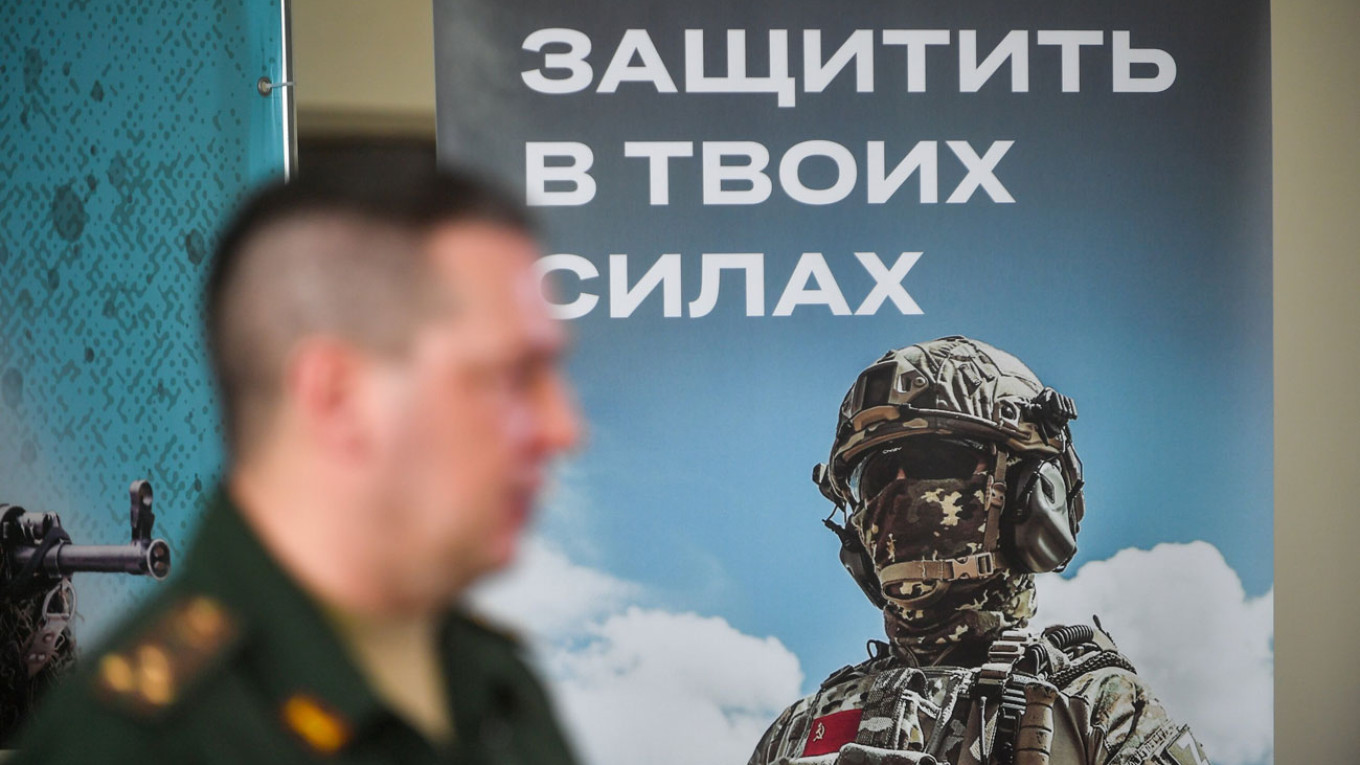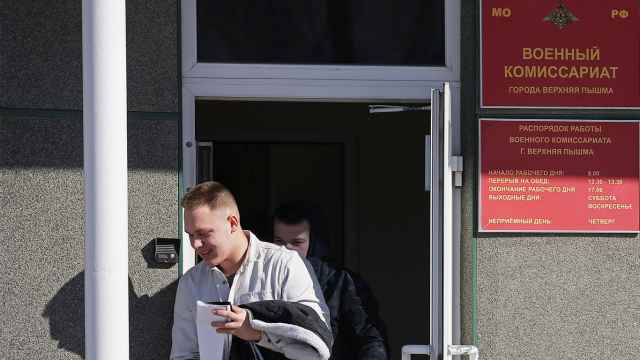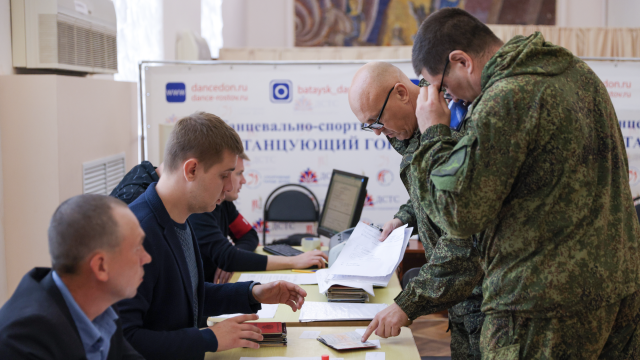Russian men of conscription age have greeted a law tightening military draft procedures with what appeared to be widespread confusion and indifference despite warnings that the changes — approved this week by the Russian parliament — could amount to backdoor martial law and facilitate a second wave of mobilization.
The wording of the law is very strange, an 18-year-old Moscow student who received a military service summons last week and who requested anonymity to speak freely told The Moscow Times.
“Likely not everyone has a clear understanding of what happened.”
While the law was passed during Russia’s annual spring draft and appears to target those required to undergo a year of compulsory military service, experts warned the changes will also give the Kremlin the tools to send more men to the frontlines in Ukraine where a Russian spring offensive has yet to achieve significant gains.
Among other provisions, the law allows the authorities to issue online call-up papers, blocks some men from traveling abroad and mandates the creation of a digital database of those eligible for military service.
“I think the reasons behind the amendments are the recent failures of the Russian army,” said Maksim Olenichev, a lawyer working for human rights project First Department.
“In essence the authorities have, in this way, come up with a second wave of mobilization.”
However, in contrast to last year’s "partial" mobilization when about 300,000 men were drafted to fight in Ukraine and tens of thousands fled abroad in panic at the thought of being sent to war, the latest changes have not triggered an exodus — or much obvious concern.
“I still don’t understand what to do and what to expect,” one 22-year-old potential conscript who did not want to give his name, told The Moscow Times.
“I think I will simply try not to go anywhere [to military recruitment offices]. I had no plans to leave Russia and I’m not going to do it now.”
Another Russian told The Moscow Times that he was planning to fake illness in order to avoid his military service.
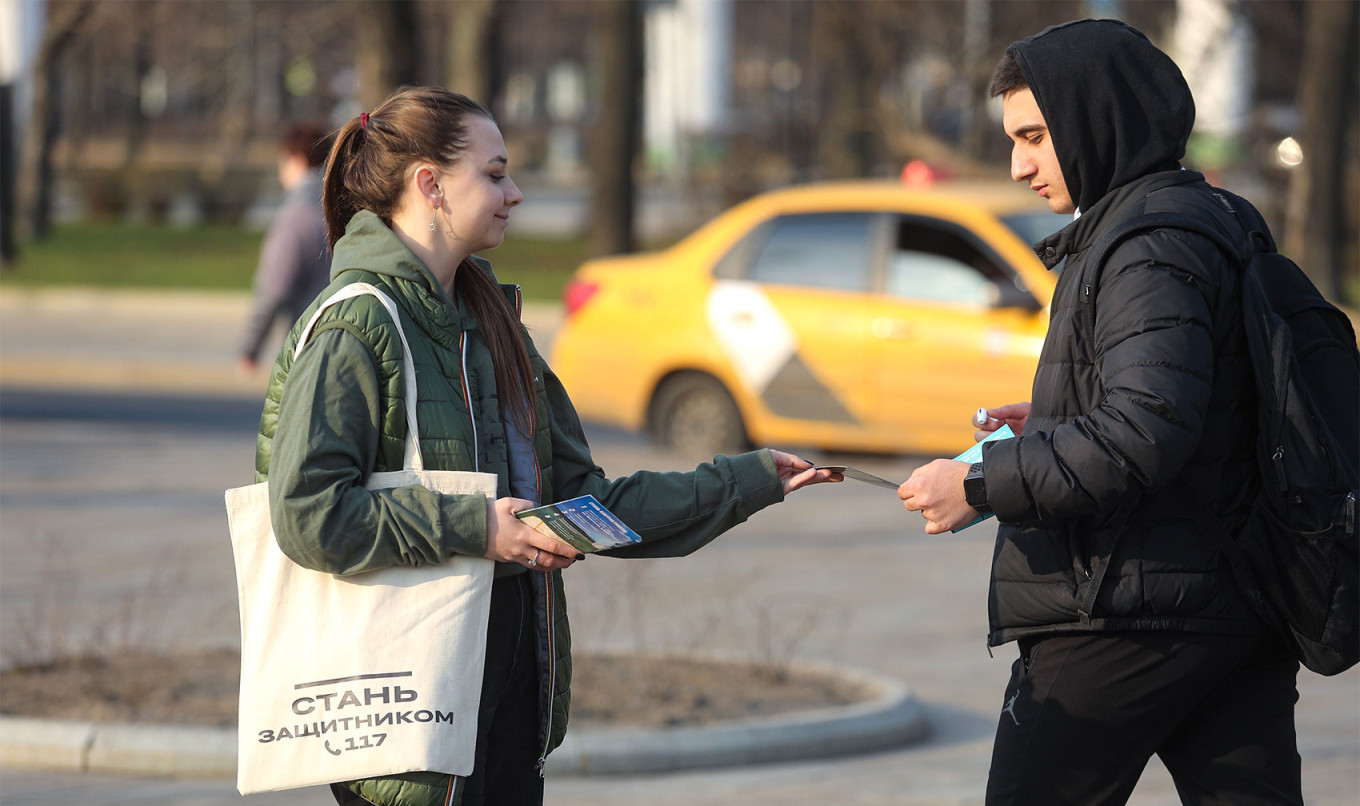
“It’s a combination of reasons — my anti-war position and the fact that I don’t want to waste one year in the army,” said the 23-year-old man, who requested anonymity.
Once the bill is signed into law by Russian President Vladimir Putin, men eligible for military service will be required to show up to recruitment offices after receiving an online summons — issued via either a new digital database, the postal service or the online state portal Gosuslugi, which is used by millions of Russians for everyday tasks including paying taxes and traffic fines.
Previously, military summons had to be delivered in person — and some men managed to avoid service in the Armed Forces by simply refusing to pick up draft papers.
The law also blocks anyone eligible for military service who has received a summons from leaving the country.
Those who continue to ignore their call-up papers will face legal restrictions including a driving ban, and being disqualified from taking out loans and selling or buying real estate.
Kremlin spokesperson Dmitry Peskov said Wednesday that the law was designed to make the process of receiving draft notices “modern, efficient and convenient.”
While the Russian authorities have repeatedly denied plans to launch a second wave of mobilization, the apparent failure of Russia’s offensive in eastern Ukraine and the prospect of a Ukrainian counter-offensive in the coming weeks has led many to suggest the Kremlin will soon be in need of more soldiers.
This month, the Russian Armed Forces dramatically ramped up its recruitment campaign to convince men to sign up to the military by choice.
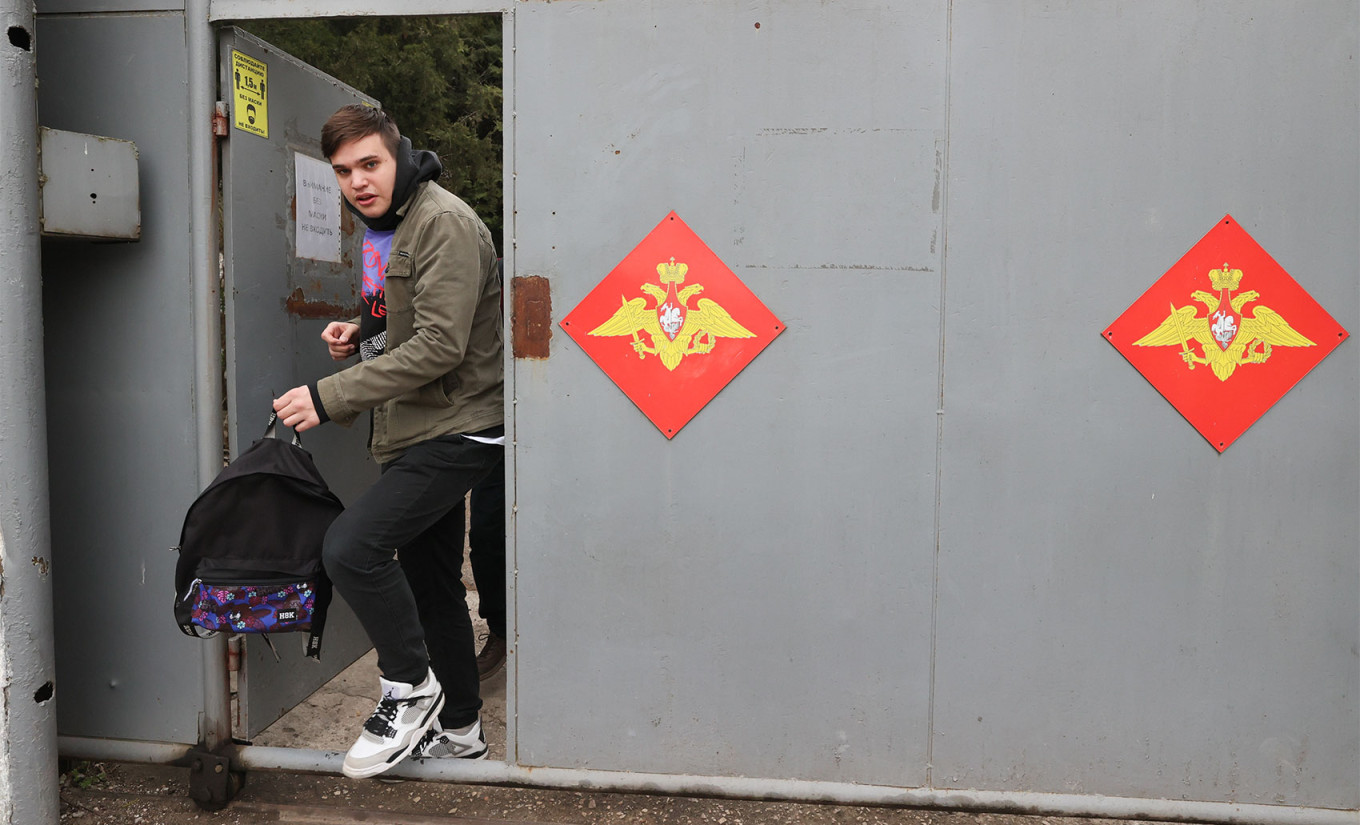
“This is the de facto introduction of martial law,” warned journalist Alexei Venediktov, the former editor-in-chief of shuttered radio station Ekho Moskvy, on Wednesday.
The digital database of men eligible for the draft will be compiled using information provided by state agencies including the Ministry of the Interior, the Health Ministry and the Federal Tax Service.
While Russian officials have repeatedly denied the Kremlin is planning to launch a second wave of mobilization, experts warn it would be simple to use the new system to boost Russia’s troop numbers in Ukraine.
According to Sergei Krivenko, the head of the Citizen, Army & the Law NGO, the law could “easily be applied” to calling up reservists in a new round of mobilization.
“It will be necessary, of course, to make changes to the law regulating mobilization, but as experience shows, that’s a matter of just a couple of days,” Krivenko told The Moscow Times, referring to the speed with which parliament approved the current bill.
Despite Russian Defense Minister Sergei Shoigu announcing that mobilization was complete in October, Putin has not signed a decree formalizing its end.
According to Krivenko and other lawyers who provide legal assistance to Russian soldiers and those who have received military summons, there have been a growing number of requests for legal advice from potential draftees in recent days.
Nevertheless, few appear to have decided to leave the country, or take other drastic steps.
“At the moment, I cannot plan anything,” one man eligible for the draft, who requested anonymity to speak freely, told The Moscow Times.
“I need to get at least some information about how all this will work.”
A Message from The Moscow Times:
Dear readers,
We are facing unprecedented challenges. Russia's Prosecutor General's Office has designated The Moscow Times as an "undesirable" organization, criminalizing our work and putting our staff at risk of prosecution. This follows our earlier unjust labeling as a "foreign agent."
These actions are direct attempts to silence independent journalism in Russia. The authorities claim our work "discredits the decisions of the Russian leadership." We see things differently: we strive to provide accurate, unbiased reporting on Russia.
We, the journalists of The Moscow Times, refuse to be silenced. But to continue our work, we need your help.
Your support, no matter how small, makes a world of difference. If you can, please support us monthly starting from just $2. It's quick to set up, and every contribution makes a significant impact.
By supporting The Moscow Times, you're defending open, independent journalism in the face of repression. Thank you for standing with us.
Remind me later.



